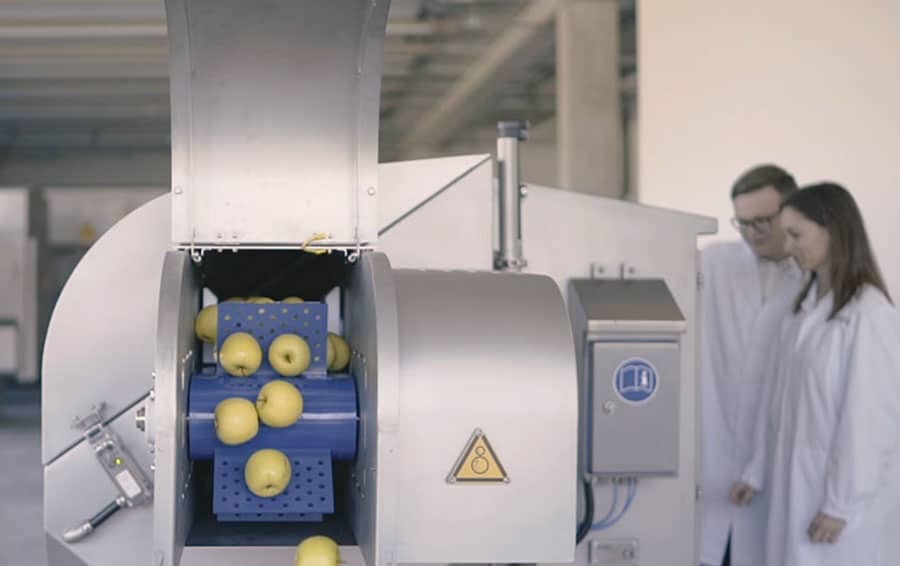Campden BRI has begun research to identify and assess untapped practical applications of the emerging pulsed electric field (PEF) technology. The technology has already shown commercial benefits for a range of product types leading to increased throughput, reduce energy use and increased product yield.
The non-thermal PEF technology effectively uses short pulses of electricity that punch holes in cells. This modification to cells and structures offers a range of processing benefits including improved drying and freezing times whilst maintaining better product quality, reducing blanching times, improved extraction and yields and microbial pasteurisation to name a few. The scientists at Campden BRI are looking at further applications that represent the industry’s needs. They are exploring surface inactivation on bigger pieces of food products with PEF using lower field strengths alone and in combination with other hurdles and are very interested to speak with companies who may benefit from this application.
Andrew Bosman, a process engineer at Campden BRI who is leading the research, said: “Academic research and current literature show PEF as one of the most promising emerging technologies available with a lot of untapped potential and possible applications. In additional to the research being undertaken we are also keen to work with manufacturers who are looking to exploit the benefits of the technology and realise applications with their products. Our extensive experience of working with new technologies and our ability to benchmark PEF against those we have on-site will ensure businesses will be able to gain an understanding of whether PEF truly meets their goals.”
PEF rapidly disrupts either microbial or a food’s cells (for preservation, extraction or functional benefits) without imparting significant heat. This renders it a non-thermal process and allows manufacturers to avoid, or greatly reduce, detrimental changes in the sensory and physical properties of their food products.
The scientists at Campden BRI can use their state-of-the-art pilot plant to trial a wide range of product types with the technology including any liquid, solid or pulp products – for example, fruit and vegetables in either their raw, cooked or juiced form.
The PEF technology can be moved to Campden BRI’s biosafety level 2 food processing hall which will allow the team to perform trials using some of the manufacturers target pathogens that are known to cause issues in their specific products. Campden BRI then has further testing capabilities at hand including sensory, microbiology, rheology, and chemistry which can be used to assess some of the end products attributes.
Danny Bayliss, the new technologies lead at Campden BRI who will be involved in the project, said:
“This research could open up further application areas for PEF which has been showing great commercial benefits for a range of other products and applications. The snacking sectors is one area where the technology can help manufacturers to be more sustainable by reducing water and oil use and the need for some processes saving total energy use. For this reason, we’re keen to encourage food businesses to explore the potential technology benefits for their products.”
The trials will begin on 1 September and run for 12-months.
Any companies wanting to get involved should call Andrew Bosman on +44(0)1386 842471






